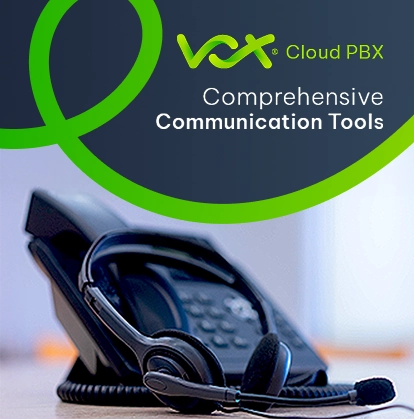One of the most important aspects of any business is that customers are able to get hold of you. As VoIP communications technology continues to evolve and improve, many businesses are saying goodbye to their old phone systems and embracing digital technology. Making that decision requires careful planning, but the lower costs, increased flexibility and simplicity of virtual PBX systems make them hard to ignore.
Choosing the right PBX for your business can be a daunting task. You ask yourself: do I remain with a traditional on-site PBX or do I go with a hosted system? If I don’t, will I be left in the dark ages, but if I do, will I lose control of my business? Decisions, decisions – all I want is for my business calls to be answered!
To help you make that decision with minimal fuss, we have outlined some questions below that will guide you in selecting the right option for your business needs.
- How big is your business?
A good rule of thumb is that if you have more than 40 employees needing connections, a traditional on-site PBX is most likely the best option. Alternatively, if you are a smaller business with fewer employees and minimal needs for advanced functionalities and features, then a hosted solution would probably be the best option.
- Do you plan on growing your business and staff in the near future?
Not only should you choose a good business phone to match your current needs, but also one that continues to meet the needs of your business as it grows.
A hosted PBX is not only flexible and scalable, but also provides security, mobility and growth whereas a traditional system is fairly stagnant, expensive to install and maintain and once it’s installed, it can be costly to add users or to replace it.
- How much are you willing to invest?
An on-site PBX solution has a high upfront cost because of the hardware, licensing, and installation costs.
Hosted PBX offers the advantage of much lower start-up costs since you’re not responsible for purchasing all of the necessary software, core hardware, and equipment as required for an on-premise system.
- How are your employees working?
In the case of remote employees, it often means sacrificing functionality and professionalism when communicating from cell phones, Skype, etc. With a cloud phone system, remote employees can take their VoIP phones wherever they go and maintain a consistent number and service functionality with customers and the home office.
- How reliable is your office’s Internet connection?
With a PBX system deployed on-site, there is no need to worry about having an internet connection that can support the phone system.
As high-speed and reliable internet connections with good download and upload speeds are becomingly increasingly available to small businesses, this can be great for e-businesses who do everything online. However, a simple connection to the internet will not necessarily do the job and it’s important to check with your service provider about the service itself, the connectivity and hosting.
In conclusion
While there seems to be more advantages to a hosted VoIP based system, the kind of phone system you opt for really comes down to the size, type of business you are running and the type of infrastructure you already have in place.
The table below provides a simple comparison between hosted and traditional premise-based PBX solutions which should aid you in making the right decision for your business PBX requirements.














